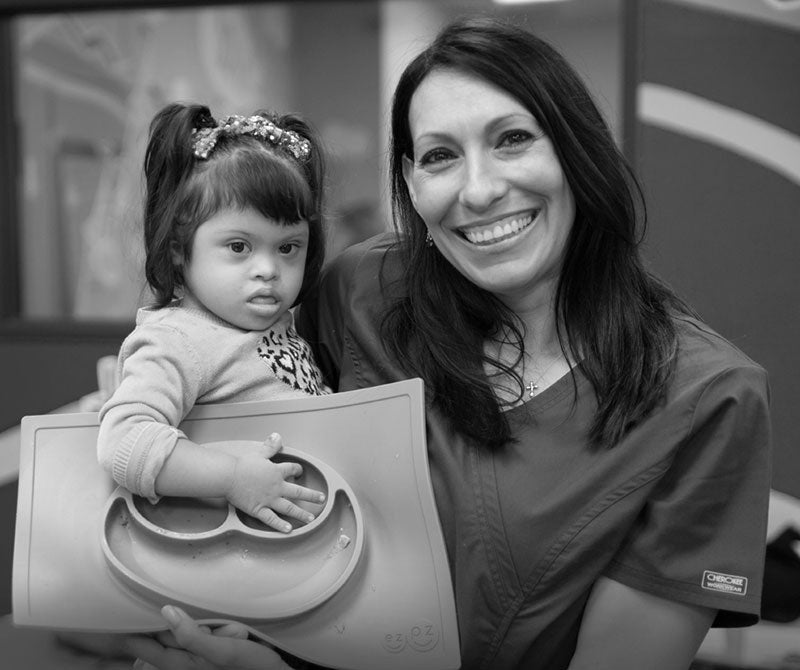Tips to Help Babies Overcome Pocketing
Do you have a baby that holds food in their mouth and refuses (or is unable) to swallow it? In my feeding courses, I educate parents on how pocketing can lead to gagging and choking incidents. In this blog I’m sharing strategies to help your baby avoid or overcome pocketing.
What is pocketing? Food pocketing occurs when a baby holds leftover food in their mouth without swallowing it. Sometimes the food is chewed and other times it can be whole pieces of food. Pocketing can be choking risk, especially if the food becomes dislodged during play or while sleeping.
Where does pocketing occur? There are ‘pockets’ in the mouth where food can hide. Check your baby for pocketing in the following areas:
- Cheeks (check both sides)
- Gums (inspect the front and back of their gum line)
- Tongue (look under the tongue)
- Palate (asses the roof of your baby’s mouth)
- Lips (check both the bottom and upper lip)
Why does pocketing occur? Babies can pocket food for a number of reasons, but these are the four most common causes I see in my private practice:
- Sensory Awareness: Most of the babies I work with are unaware that there is still food in their mouth, which is why pocketing can be so dangerous. When you can’t feel the food, pocketing can occur.
- Motor Awareness: Oftentimes I see babies who do not have the motor skills to push out the food or produce a strong swallow. When you can’t move the food, pocketing can occur.
- Taste Awareness: Some babies are offered the same bland or tasteless foods over and over. When you can’t taste the food, pocketing can occur.
- Pain Awareness: In my clinical experience, babies with gastroesophageal reflux disease (GERD) or dysphagia refuse to swallow food because they may associate it with pain or discomfort. Other babies may be recovering from a tongue or lip tie surgery. During their oral recovery, they may be interested in tasting foods but not necessarily chewing and swallowing them. When you can’t tolerate pain, pocketing can occur.
What strategies can I use to decrease pocketing? Your baby is learning how to eat, and the more your baby practices eating a variety of tastes, textures and temperatures, the better their swallowing skills will be. I like to teach parents how to decrease pocketing at mealtime and reduce gagging and choking risks. Here are the three strategies I use most when working with babies that don’t swallow all of their food.
- Bites + Sips: Try offering bites of food with sips of liquids from an open cup. Developmentally, your baby can start to drink from an open cup at 6 months of age (held by an adult). I designed our ezpz Tiny Cup specifically for babies 6-12 months to help them meet their open-cup milestones as well as aid in the relief of pocketing. It’s important to use an open cup (verses a sippy cup) as it helps pull the fluid through the mouth in a swallowing pattern that easily clears the debris.
- Cold + Warm: I like to alternate temperatures during the meal in order to help baby become more aware of where the food is in their mouth. For example, try introducing a warm meal with cold cucumber slices (skin off). Or, offer frozen fruit to suck on with warm breastmilk or formula from the Tiny Cup.
- Oral Care: After your baby eats, check for pocketing by assessing their mouth with your finger, a tooth tissue or toothbrush. Since it’s important to provide your baby with daily oral care, post-meal is a perfect time to implement this strategy. Be sure to inspect and clean the cheeks, gums, tongue, palate, lips and teeth (if any have erupted).
I hope these tips help you and your baby overcome or avoid pocketing. Implementing these feeding strategies make starting solids a safer and more enjoyable experience for your entire family. If you use these tips, please let us know how it goes! #ezpzfun
Dawn Winkelmann, M.S, CCC-SLP
SPEECH LANGUAGE PATHOLOGIST & FEEDING SPECIALIST FOR EZPZ
Dawn Winkelmann, a.k.a “Ms. Dawn”, has treated thousands of kids across the globe by helping families overcome picky eating stages and food refusals, while adding new foods into their diet. Her high success rate is attributed to Ms. Dawn bringing her education, experience, sense of humor and her favorite feeding products to the family dinner table.
You will find Ms. Dawn’s expert feeding advice to be positive and fun for the entire family! She adapts complicated feeding/swallowing research and makes it practical and easy for parents! Get ready to learn the science behind your favorite feeding products and ways to bring happy family mealtimes back!



